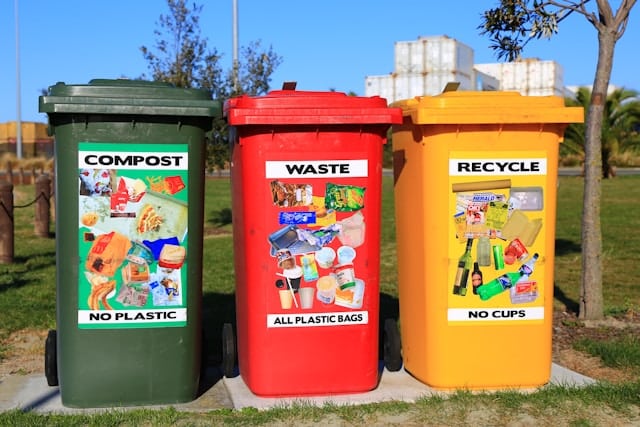How Can Technology Assist in the Efficient Management of Urban Waste?

Urban waste management is a chore most of us tend to overlook. However, as part of a responsible society, it’s an area that requires our collective attention. The exponential growth of urban populations, coupled with the surge in consumption patterns, has led to a colossal increase in waste production. The need for efficient waste management solutions is not just a necessity, it’s an urgency. Enter technology, the knight in shining armour. It seems there is no problem too big for technology to handle, and waste management is no exception. With a multitude of technological advancements at our disposal, handling urban waste in an efficient, sustainable, and smart manner has never been more achievable.
The Rising Tide of Waste
Before we delve into the different technologies that can help us manage waste more effectively, let’s first understand the gravity of the situation. According to the World Bank, global waste generation could soar up to 3.40 billion tonnes by 2050 – a staggering increase from the 2.01 billion tonnes in 2016. Urban areas, being the epicentres of consumption, contribute significantly to these numbers. With already stretched resources and mounting environmental concerns, the traditional methods of waste collection and disposal are no longer viable.
Avez-vous vu cela : Analytics and monitoring tools for chatbots
Data-Driven Waste Management
The first step towards an efficient waste management system is understanding the problem at hand. This is where data comes in. Detailed data about waste generation, collection, and disposal can help us gain insights into waste patterns and devise strategies accordingly.
Technologies like Geographic Information System (GIS) and Radio Frequency Identification (RFID) are instrumental in this area. GIS uses cross-referenced data to map the waste generation and disposal sites, aiding in better route planning for waste collection. RFID, on the other hand, involves tagging waste bins and tracking them digitally. This allows for real-time information about the waste levels in different areas, assisting in timely and efficient waste collection.
Lire également : What Innovations Are Driving the Adoption of Sustainable Practices in Textile Manufacturing?
Tech-Powered Recycling Solutions
Recycling has been the buzzword in waste management for quite some time now. However, the actual process of recycling is still a challenge due to the lack of proper sorting and segregation of waste. This is where technology steps in with solutions like automated waste sorting systems.
These systems use advanced technologies like spectral imaging and machine learning algorithms to sort waste accurately and efficiently. Not only does this increase the volume of waste that can be recycled, but it also saves considerable human effort and time. Moreover, with the rise of the circular economy, the recovered resources can be reintegrated into the production cycle, reducing the need for virgin materials.
Converting Waste into Energy
The idea of transforming waste into energy is not new, but it has gained momentum with the advancements in technology. Technologies like incineration, gasification, and anaerobic digestion convert waste into different forms of energy like heat, electricity, and biofuel. While these technologies have been around for a while, the new wave is about making them more efficient and environmentally friendly. For instance, ‘smart’ incinerators are now being designed to reduce harmful emissions while maximizing energy production.
The Future of Waste Management: Smart Cities
The concept of smart cities is all about integrating technology into every aspect of urban life, and waste management is a vital part of this vision. Imagine a city where waste bins send alerts when they are full, where waste collection routes are optimized using real-time data, where recycling is a fully automated process, and where waste is not seen as a problem but as a resource. Although it may sound like a far-fetched dream, with the pace of technological advancements, this could be the future of urban waste management.
In a nutshell, technology can play a significant role in tackling the waste management challenge. It can help us understand the problem better, devise efficient waste collection strategies, streamline the recycling process, convert waste into energy, and ultimately, move towards a more sustainable and circular urban economy. So, the next time you see that overflowing bin in your neighborhood, remember, there is a technological solution waiting to be explored.
The Significance of Real-time Waste Monitoring
Real-time waste monitoring can be considered as the next big leap in efficient waste management systems. One of the biggest challenges in waste management is the lack of real-time data. Traditional waste collection methods often rely on pre-determined schedules, which can lead to inefficiencies such as collection trucks arriving at half-empty bins or overflowing bins being neglected. Real-time waste monitoring systems can overcome these issues by providing up-to-date information about the fill-level of waste bins.
These systems use sensor technology to track the fill levels of waste bins and relay this information to a centralized database in real-time. Using this data, waste collection schedules can be optimized, ensuring that collection trucks are dispatched only when the bins are full. This not only streamlines the waste collection process but also reduces greenhouse gas emissions by decreasing the number of trips made by collection trucks.
Moreover, real-time waste monitoring can help in identifying patterns in waste generation, which can be invaluable in devising long-term waste management strategies. For instance, it can identify areas that consistently produce high amounts of waste, indicating the need for increased waste collection or recycling efforts in those regions.
An example of this technology in action can be seen in smart waste bins equipped with fill-level sensors. These bins can send alerts to the waste management authorities when they are nearing capacity, enabling timely waste collection. This technology is not limited to solid waste only. It can also be used to monitor organic waste, hazardous waste, and even plastic waste, each of which requires different waste disposal techniques.
In essence, real-time waste monitoring, coupled with the power of data analytics, can revolutionize the way we approach waste management, making it more efficient, sustainable, and responsive to the needs of urban areas.
Reducing Environmental Impact through Energy Technologies
One of the most damaging environmental impacts of waste disposal is the release of greenhouse gases. Landfills, in particular, are a significant source of methane, a potent greenhouse gas. However, recent advancements in energy technologies can convert these harmful emissions into a valuable resource.
Biogas technologies, for instance, can capture the methane released from organic waste in landfills and convert it into a usable form of energy. This not only reduces the environmental impact of waste disposal but also contributes to a circular economy by turning waste into a valuable resource.
Another notable technology in this regard is waste-to-energy incineration. This involves burning municipal solid waste at high temperatures to generate heat, which can then be used to produce electricity. Advanced incinerators are designed to minimize toxic gas emissions and maximize energy production, thus offering a sustainable alternative to traditional waste disposal methods.
Similarly, pyrolysis and gasification are thermal technologies that can convert non-recyclable waste into energy-rich fuels. While these technologies have been around for a while, the focus now is on making them more efficient and eco-friendly.
In conclusion, energy technologies have a crucial role to play in reducing the environmental impact of urban waste. By turning waste into energy, we can transition towards a more sustainable and circular economy, where waste is not seen as a problem but as a resource.
Conclusion
Evidently, technological advancements hold the key to efficient waste management in urban areas. From real-time waste monitoring to data analytics, automated waste sorting to energy technologies, technology is proving to be a game-changer in waste management.
The future of waste management lies in smart cities, where technology is integrated into every aspect of urban life. The vision is to create a circular urban economy, where waste generation is minimized, recycling is maximized, and waste is seen as a resource rather than a problem.
However, it’s important to remember that technology alone cannot solve the waste management challenge. It must be complemented by responsible consumption patterns, effective policy regulations, and public awareness about waste management. Nevertheless, with the pace of technological advancements, there’s hope that we can build a future where urban waste is managed efficiently and sustainably. As we continue to explore technological solutions, let’s also strive to be a part of the solution by reducing, reusing, and recycling our waste.
